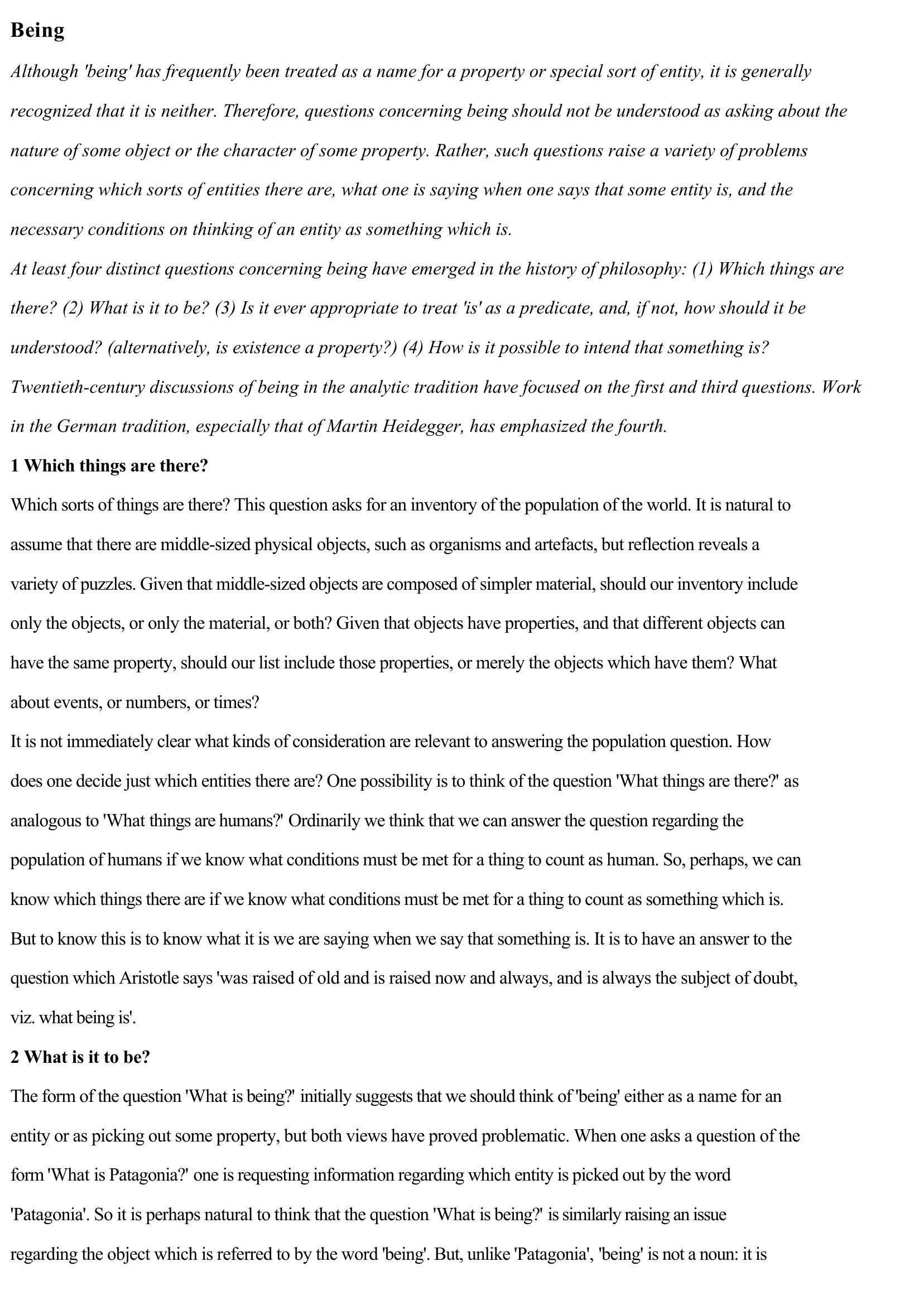Being
Publié le 16/05/2020
Extrait du document
«
Being
Although 'being' has frequently been treated as a name for a property or special sort of entity, it is generally
recognized that it is neither.
Therefore, questions concerning being should not be understood as asking about the
nature of some object or the character of some property.
Rather, such questions raise a variety of problems
concerning which sorts of entities there are, what one is saying when one says that some entity is, and the
necessary conditions on thinking of an entity as something which is.
At least four distinct questions concerning being have emerged in the history of philosophy: (1) Which things are
there? (2) What is it to be? (3) Is it ever appropriate to treat 'is' as a predicate, and, if not, how should it be
understood? (alternatively, is existence a property?) (4) How is it possible to intend that something is?
Twentieth-century discussions of being in the analytic tradition have focused on the first and third questions.
Work
in the German tradition, especially that of Martin Heidegger, has emphasized the fourth.
1 Which things are there?
Which sorts of things are there? This question asks for an inventory of the population of the world.
It is natural to
assume that there are middle-sized physical objects, such as organisms and artefacts, but reflection reveals a
variety of puzzles.
Given that middle-sized objects are composed of simpler material, should our inventory include
only the objects, or only the material, or both? Given that objects have properties, and that different objects can
have the same property, should our list include those properties, or merely the objects which have them? What
about events, or numbers, or times?
It is not immediately clear what kinds of consideration are relevant to answering the population question.
How
does one decide just which entities there are? One possibility is to think of the question 'What things are there? ' as
analogous to 'What things are humans? ' Ordinarily we think that we can answer the question regarding the
population of humans if we know what conditions must be met for a thing to count as human.
So, perhaps, we can
know which things there are if we know what conditions must be met for a thing to count as something which is.
But to know this is to know what it is we are saying when we say that something is.
It is to have an answer to the
question which Aristotle says 'was raised of old and is raised now and always, and is always the subject of doubt,
viz.
what being is'.
2 What is it to be?
The form of the question 'What is being? ' initially suggests that we should think of 'being' either as a name for an
entity or as picking out some property, but both views have proved problematic.
When one asks a question of the
form 'What is Patagonia? ' one is requesting information regarding which entity is picked out by the word
'Patagonia' .
So it is perhaps natural to think that the question 'What is being? ' is similarly raising an issue
regarding the object which is referred to by the word 'being' .
But, unlike 'Patagonia' , 'being' is not a noun: it is.
»
↓↓↓ APERÇU DU DOCUMENT ↓↓↓

































